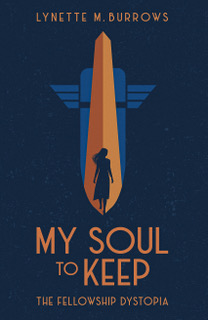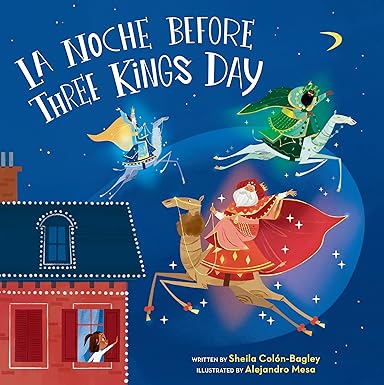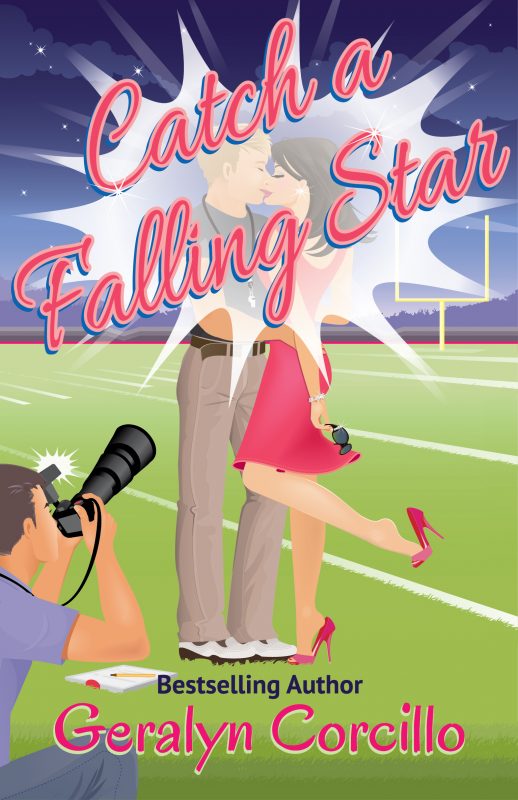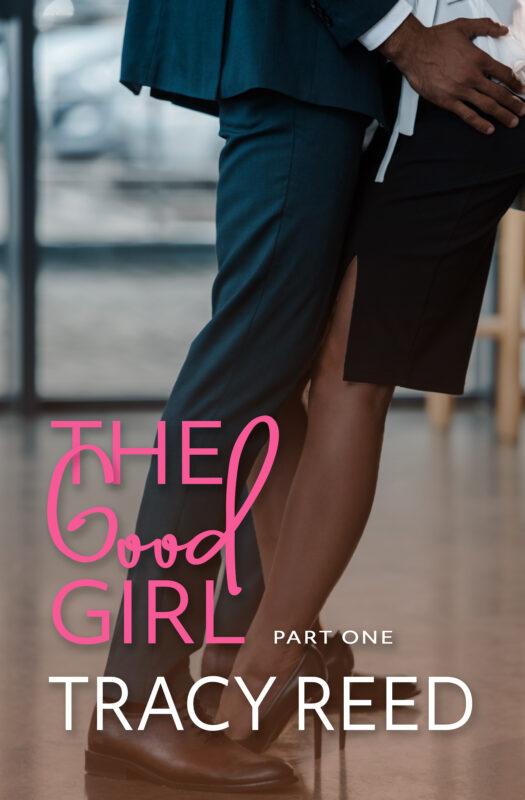Get Me Outta Here!
October 25, 2022 by Kidd Wadsworth in category Infused with Meaning by Kidd Wadsworth tagged as day surgery, fiction, kidd wadsworth, panic, short story
Get Me Outta Here!
by Kidd Wadsworth
We arrive at 6 am. I sign a piece of paper which informs me of the risks of my day procedure using phrases such as “unforeseen side effects, including death.” A plastic bracelet is secured around my wrist. Promptly at 7 am, I kiss my husband goodbye and follow a stern-looking nurse through a side door. She points me to a changing room.
“Nothing on underneath. Only the gown.”
I obey.
She takes my clothes, my shoes, my underwear. I am left barefoot in a nearly see-through gown I hold shut in the back with a tight grip on the gaping cloth.
“Lay down.” She points to a narrow bed on rollers.
Again, I obey.
Three seconds later, I have a tube in my arm. Another nurse takes my blood pressure and my pulse. “Did you have anything to eat in the last twenty-four hours?”
“No.”
“Are you sure?”
“Yes.”
“No cereal, no fruit, no bread, no banana . . . “The list continues. On and on.
“No.”
“If you’ve had something to eat, I need to know.”
“No, I have not had anything to eat.” Does she think I’m lying?
“This form says that I’ve asked you if you’ve had anything to eat and you’ve said, no. Sign here.”
I sign.
Too late, I realize I didn’t read the form. As she walks away, I almost call her back, but that’s stupid—isn’t it? I mean, why am I so nervous? This is just day surgery.
They wheel me away down a hallway, into an elevator, and then into a room crowded with people. Surely this can’t be correct? This is minor surgery. What are all these people doing here? I count fourteen. Really? Fourteen?
Two nurses or doctors—let’s just call them people in scrubs and masks—strap me down to the table.
Why straps? Do they expect me to try to make a run for it?
“Just relax,” one of the people who had strapped me to the table says.
Does he really think the phrase, “Just relax,” makes people relax? I think unstrapping me might make me relax.
Above me lights, so many lights, perhaps fifteen or twenty, glow brightly, each one with a shiny metal hat to direct the beam. Moving my head slightly from side to side, I intently examine the fixture. Something’s wrong, but I can’t quite put my finger on it. Then I realize that although the fixture is polished and highly reflective, I can’t see my reflection on any surface. Someone has deliberately designed the fixture so that I, the patient, cannot see myself strapped down to the operating table.
My heart pounds in my chest.
I gasp for breath.
Calm down. It’s only day surgery. This probably isn’t a horror movie. Surely, they aren’t going to harvest my organs and sell them overseas or implant an alien fetus in my uterus.
Yet, there is something about those lights, as if no one wants me to realize what a precarious position I’m in. Precarious? No, helpless! And the masks? Of course, they are wearing masks. That way I can’t identify them in a police lineup when I finally manage to escape and notify the authorities.
As every instinct in my body screams, “Get out! Get out now!” the nurse/doctor/whatever who had strapped me down, injects something into my IV.
I want to shout, “No!” But I don’t. Afterall, what can I do? I AM STRAPPED TO THE TABLE!
“Count backwards from a hundred,” he says.
I try to control my shaking. “One hundred.” I am so obedient. Why am I so freaking obedient?
“Please keep counting.”
“Ninety-nine . . .”
I’m an educated, adult woman. Why did I allow someone to strap me, nearly naked, to an operating table in a room full of strangers?
Strangers?
My doctor? Where is my doctor? Am I in the right room? What if there’s been some clerical error?
I realize I never read the name on my bracelet.
What if they think I’m someone else? What if they amputate my leg or remove my brain!
I lift my head, straining to see the thin slip of plastic. I can’t quite . . .
I wake in recovery. Home by super. The operation is a complete success.
Nope, never going back.

Kidd Wadsworth is the author of the high fantasy novel: “The Death of Magic” which you can read for free by clicking here: https://www.scribblehub.com/series/588059/the-death-of-magic/
NOT GUILTY
September 25, 2022 by Kidd Wadsworth in category Infused with Meaning by Kidd Wadsworth tagged as Funny stories, writing, Writing Humor
———————
To my Writer Friends,
In the following piece, first the reader watches as the trap is set. Then the action is drawn out allowing the reader to fully anticipate the moment when the trap will spring shut. Finally, the climax comes, the poor unsuspecting victim is caught, and we, along with our protagonist, almost feel guilty. I find this type of humor easier to craft than any other form.
Give it a try,
Kidd
______
NOT GUILTY
Kidd Wadsworth
I think I have screwed up DNA. Amidst those A’s, C’s, G’s and T’s I must have a J or an L. You see, I just don’t feel guilty. Nope. Sorry. Well, actually I’m not sorry. I don’t even feel guilty for not feeling guilty.
I suppose it was the 1980s. My dad scores four Ranger baseball tickets. Dad invites me, my brother-in-law Curt and my boyfriend, John, to go with him. On the day of the game John shows up with his mitt.
I grin. “You brought your mitt?”
“I’m gonna catch a ball.”
We have great seats. Right behind the catcher. In front of us, are some Yankees. Not baseball player Yankees, but rather, you know, northerners, fellas rooting for the other team. We give ’em grief, and they give it right back. Yup, we were having ourselves a real good time.
And all the while John sits in the seat next to me punching his fist into his glove.
Now behind us, about 10 rows up are two little old ladies. I mean they are Hollywood type cast: skinny, white-haired, wrinkled, but spry. Nolan Ryan isn’t pitching that night, so the rest of the seats are empty. It’s just us, the Yankees, and the two grannies.
Up to the plate walks this stocky dude. Whack! The ball flies over the backstop and what do you know, the little old ladies catch the ball. I kid you not. I told you they were spry. Twice more he fouls, then strikes out. As the dude hustles on back to the dugout, an evil idea forms in my mind. Being guiltless I can’t resist. It’s like trying not to sigh when you drop into the hot tub.
“John,” I say adding a dose of southern bell to my Texas accent, “would you get me some nachos?”
He looks at me like I’m the stupidest woman on the planet. With that look, his fate is sealed. I mean, I’m guiltless, but occasionally I do take pity on people. But after that look? Poor, poor John.
“How can you ask me for food at time like this?” he says. “Did you see that foul ball?”
I lean in closer. Oh, did I tell you that I’m cute?
“John,” I have the southern belle accent going again, “please.” I draw out the word please until its twelve syllables long. I kiss his cheek. “Besides, this is a different batter. He’s gonna hit that ball somewhere else. You know that.”
He sighs. As he gets up, I say, “Leave the mitt.”
His eyes narrow, like he’s some Neanderthal looking at a creature he’s thinking about killing and having for dinner. I hold out my hand and smile, oh, so sweetly. He rolls his eyes and hands me the mitt. Ten seconds later he disappears behind the stands, and I get up to go talk to the sweet little old ladies. Yeah, you got it. They’re not quite as innocent as they look. I ask to borrow their ball. One shakes her head. The other smiles like the Chester Cat. I return to my seat with the ball tucked into the pocket of John’s mitt. Below me one of the Yankees says, “You’re an evil woman.”
I smile at him, oh, so sweetly.
Two batters later, John returns with my nachos. I’ve still got that borrowed ball snuggled into the pocket of his glove and the glove folded closed around it.
Now, I should pause here and tell you that Dad and Curt haven’t said a word. Dad because it’s Mom’s DNA I inherited and he gave up a long time ago, and Curt because my sister got the DNA too, and Curt believes John needs to be prepared for his future life of agony should he choose to propose.
As John starts to sit down, I proclaim, “John, John, I caught a ball. I caught a ball.” Of course, immediately everyone is paying attention: Dad, Curt, the Yankees, and the little old ladies, but they don’t say a word. No, not one word.
John rolls his eyes. “Really?”
“Yeah. Really. It just sailed over the net.” My eyes go up in the air like I’m watching an imaginary ball. “It came right to me.” Here, I pause, for dramatic effect. “Well, actually it came right to your seat, but I just reached over and caught it.”
“You did?” He rolls his eyes again. I’m getting real tired of that.
“Yes, I caught a ball.” I act all excited.
“You caught a ball.” Again, with the eyes.
“Yes,” I say, like I’m truly hurt that he doesn’t believe me. “I caught a ball.”
“Well, then.” He gets this disgusting smirk on his face. I mean how dumb does he think I am? And he says, “So, where is it?”
My face, my pulse, my sweat glands would have stood up to a CIA lie detector test. I reach into the pocket of that mitt and like I’m so happy I’m about to burst I say, “Here it is.”
Oh, the look on his face. Like a little boy whose puppy just died. I almost feel guilty. Really. I ALMOST did. You know, there was this brief twinge of, of, of . . . something. But it disappeared.
He sinks dejected into his seat. Those Yankees shake their heads. Ten rows behind me I hear smothered giggles. I get up, and as John watches, I hand that ball back to the little old ladies. Everyone bursts out laughing. My stomach aches from it.
Of course, when I try to sit back down, I have to climb over John. He refuses to move his legs. Doesn’t give me any nachos either.
0 0 Read more
Writing Truth
June 18, 2020 by Kidd Wadsworth in category Infused with Meaning by Kidd Wadsworth, Writing
The elusive goal in writing appears to be the creation of magic moments: the beauty of ice coating the bare branches of a tree in winter, the thrill of racing down a basketball court, jumping, and YES! perfectly blocking an opponent’s layup.
But magic moments are pretend writing, like a little girl playing dress-up in her mother’s high heels and pearls. When we grow up, we write truth. More accurately, we sneak truth by the enraptured reader.
We humans like to feel good—think whole body massages. We covet delicious food: prime rib, strawberries, did I mention chocolate? We seek to be entertained: music drifting through high quality ear phones, comedians doubling us over with so much laughter we cry out in pain, “Please, please stop.” We are hedonists content to drift along on the surface of life. Truth? We don’t want truth, that’s way too much work. So, we writers, ensnare our readers in the emotions of our main character. Then as the character encounters truth, so does the unsuspecting reader.
But so powerful is the art form, that if we write without knowing the truth, sometimes the truth reveals itself.
Several years ago, I sat across my kitchen table from a wonderful woman as she told me that she had been sexually assaulted. “Well, I was stupid,” she said. “I shouldn’t have gotten in the car with him. I was trained in self-defense, but I…It was really all my fault.”
I gripped the edge of my chair to restrain myself. “It wasn’t your fault,” I whispered. “He committed a felony. He’s a criminal.”
“No, you don’t understand. I had been drinking.”
“Did you say no?”
“Well, yes.” She shook her head back and forth, put her head in her hands, self-disgust in every movement.
“So, you did try to fight him?”
“Yes,” she stood, looking for her purse. “Don’t you see, I knew all these Kung Fu moves.” Her voice got louder with each word. “I should have been able to get free. It was my fault!”
“It wasn’t your fault. He attacked you.”
She found her purse, but not her keys.
“I’ve got some fresh organic lemon. Let me get you some for your tea.” Remembering the cookies, I put three on a plate in front of her, tempting her. “Want some, two kinds of chocolate chips?”
She collapsed into her chair. I brought a box of tissues; gently touched her arm. “Why don’t you write that story.”
“No,” she shook her head. “I couldn’t.”
I tried again. “Perhaps if you wrote it, someone who read it, might stop blaming herself. Maybe she’d realize that what happened to her wasn’t her fault.”
But that’s not what I wanted to say. What I wanted to say was, “Perhaps if you wrote your story, you’d realize the attack wasn’t your fault.”
A few minutes later she made an excuse and left. I get it, even speaking about what happened thirty years ago was overwhelming. But still she doesn’t write her story; she doesn’t write her truth. And I know as I pen these words that she still believes the attack was her fault.
0 0 Read moreGore by Kidd Wadsworth
May 18, 2020 by Kidd Wadsworth in category Infused with Meaning by Kidd Wadsworth
Gore
I’m talking gore today. I’m going for yuck, gross and gag me with a spoon. This isn’t about obscenity or shock, it’s about making your reader vomit. Yes, I really said that. Gore is often used to identify the villain. Today I’ll talk about layering gore, like layers of paint.
First lay down the primer, a sentence which prepares the reader.
Her stomach threatened to spill its lunch at the smell of the thing.
Apply the first top coat. The description is still general only a few details are added.
The witch was no more than four feet tall and nearly bald. What little hair she had was filled with sticks and clumps of seaweed.
Now for the finish coat. Note the added details, the adjectives stacked up one after another.
Two weak, watery eyes peered out of a face covered with pus-spewing sores. A rat sat her shoulder, her belt was a live snake, her clothes made from the skin of a deer to which pieces of green, maggot-laden rotting meat still clung. She had no shoes.
Later this story returns to the gory witch.
This time she’s attempting to get home. The same pattern emerges. First the primer: sentences which prepare the reader, which set the stage for what is to come.
The witch’s breath came in ragged gasps. Lying on her belly, she clawed up clumps of soil, her fingers relentlessly searching the ground. Yes! Warm air touched the skin of her middle finger. Following the vent of air, she pushed her finger into the ground.
With the first top coat, details are added, and the reader begins to feel nauseous.
Her eyes rolled back in her head. She reached for the change, sticking out her tongue so far she gagged herself. Tongue first, then teeth, nose and eyes, she dissolved, the warm goo oozing down her arm, following her finger, dripping into the vent, into the pit below the soil. Head and neck followed. Feet, ankles, knees and thighs liquified, rushing up her middle and down her arm. The hand which had not found the vent and its arm also turned to mush and dripped into the earth. Her core dissolved and with it the rat, which had sat on her shoulder, and the snake she’d fashioned into a belt. These also dribbled into the vent. Finally, the arm, hand and finger trickled away. All that remained were a few bits of seaweed and a poorly scraped deer hide.
Now for the finish coat.
But wait, how can we possibly improve on all that gore. Yes, but of course, we reveal the depths of her villainy, she’s not a witch at all. She’s something much worse.
Two hundred feet, seeping through cracks, dripping from rock to rock, she drained into the hot bowels of the Earth, and the bubbling pit of lava which lay directly below dragon’s keep. Around the pit, the antenna of lava beetles shot up, awakened by the scent of a dragon. The witch goo, now floating on the lava’s surface, congealed first into a shapeless glob. Within minutes, the dragon’s large backbone formed. Weakened of magic, it was a mere 20 feet long. Over the next two days the head formed, the energy required to reconstitute its immense brain, cooling the lava more than a hundred degrees. As the belly, limbs and wings grew the lava beetles began their work, scraping off and eating ill-formed scales—of which there were many—allowing the dragon to regrow newer stronger ones. At last the claws formed, only one made of obsidian. Whole again, the dragon slept, drawing energy from the heat of the pit, dreaming, tasting the young girl and her magic which would soon fill its aching belly.
All that gore has accomplished its goal. It has prepared the reader. The villain is coming—and she’s a dragon.
Happy writing. I love gore, it’s addictive. Please respond with a bit of your best. I look forward to vomiting over your work.
Gifts by Kidd Wadsworth
April 18, 2020 by Kidd Wadsworth in category Infused with Meaning by Kidd Wadsworth tagged as gifts, inspiration, wiriting
Gifts.
How is it that I constantly receive gifts? Gifts from family, every day, all day. “Thought I’d work on your fish table.” Two years ago, at a gathering of friends, I saw a small table—shaped like a fish—of a good height to sit between rocking chairs on my back porch, to set a coke on while I watch the cardinals that have decided to nest in those ugly bushes I’ve been meaning to chain saw down. But not now, because they are roosting there, and I can’t bear to see them go. During this time of pandemic, social distancing and stay at home, my husband is making me a fish table. Of course, it won’t be shaped like a fish, because he hasn’t the tools for that, so he was going to carve a fish into the top. Now it’s three maple leaves. I like maple leaves better.
My son is teaching me to code in html. Okay, he’s laughing with me as I learn to do the simplest of things. I can now create a website that spins a cat picture.
Gifts from friends. A telephone call. Have you recovered? I had a minor infection, cured with good ole antibiotics. My doctor’s gift. Yes, I’m fine. Do you need anything? Yes, I needed you to call, but you’ve done that, you’ve given me the security of a friend’s voice. And I remember what a good friend you are. So incredibly dependable. How do I deserve the wonderful gift of you?
Gifts from strangers. Why? Why do people who don’t know me, give me gifts? Watercolor videos on YouTube. Almost I’ve gotten out my paints. Still scared. Maybe I’ll watch a few more videos. Comedians. I like the guy who sings with famous people in his car. I do that. You know, sans the comedian and sans the famous people. I dance, too. I like to make the people in the car next to me laugh.
Tim Ferriss, gave me a gift, his book: The 4-Hour Chef. More than a cookbook it teaches the reader how to quickly learn anything. Tim recommends the creation of a “One-Pager”. On one page (8.5” x 11”, no cheating with super large sheets of paper) he recommends writing down the most important concepts you must grasp to learn the desired skill. For ten years I have struggled to create meaningful stories, stories that enrich lives. Here is my One-Pager for aspiring writers. It’s good for sticking to your refrigerator, or the wall behind your desk. It’s a gift.

Download Your Own PDF Copy of Kidd Wadsworth One Page Fiction Essentials–It’s a Gift.
1 1 Read more
Affiliate Links
A Slice of Orange is an affiliate with some of the booksellers listed on this website, including Barnes & Nobel, Books A Million, iBooks, Kobo, and Smashwords. This means A Slice of Orange may earn a small advertising fee from sales made through the links used on this website. There are reminders of these affiliate links on the pages for individual books.
Search A Slice of Orange
Find a Column
Archives
Featured Books
MY SOUL TO KEEP
Miranda has three days until she must surrender control of her own life forever.
More info →
LA NOCHE BEFORE THREE KINGS DAY
La Noche Before Three Kings Day is a perfect holiday tale.
More info →CATCH A FALLING STAR
A TV star tells the paparazzi she's engaged to a high school football coach, but she doesn't tell him … because she barely even knows him.
More info →THE GOOD GIRL PART ONE
Gabriella Townsend is by all definition a "Good Girl." Her life is about to change.
More info →Newsletter
Contributing Authors
Search A Slice of Orange
Find a Column
Archives
Authors in the Bookstore
- A. E. Decker
- A. J. Scudiere
- A.J. Sidransky
- Abby Collette
- Alanna Lucus
- Albert Marrin
- Alice Duncan
- Alina K. Field
- Alison Green Myers
- Andi Lawrencovna
- Andrew C Raiford
- Angela Pryce
- Aviva Vaughn
- Barbara Ankrum
- Bethlehem Writers Group, LLC
- Carol L. Wright
- Celeste Barclay
- Christina Alexandra
- Christopher D. Ochs
- Claire Davon
- Claire Naden
- Courtnee Turner Hoyle
- Courtney Annicchiarico
- D. Lieber
- Daniel V. Meier Jr.
- Debra Dixon
- Debra H. Goldstein
- Debra Holland
- Dee Ann Palmer
- Denise M. Colby
- Diane Benefiel
- Diane Sismour
- Dianna Sinovic
- DT Krippene
- E.B. Dawson
- Emilie Dallaire
- Emily Brightwell
- Emily PW Murphy
- Fae Rowen
- Faith L. Justice
- Frances Amati
- Geralyn Corcillo
- Glynnis Campbell
- Greg Jolley
- H. O. Charles
- Jaclyn Roché
- Jacqueline Diamond
- Janet Lynn and Will Zeilinger
- Jaya Mehta
- Jeannine Atkins
- Jeff Baird
- Jenna Barwin
- Jenne Kern
- Jennifer D. Bokal
- Jennifer Lyon
- Jerome W. McFadden
- Jill Piscitello
- Jina Bacarr
- Jo A. Hiestand
- Jodi Bogert
- Jolina Petersheim
- Jonathan Maberry
- Joy Allyson
- Judy Duarte
- Justin Murphy
- Justine Davis
- Kat Martin
- Kidd Wadsworth
- Kitty Bucholtz
- Kristy Tate
- Larry Deibert
- Larry Hamilton
- Laura Drake
- Laurie Stevens
- Leslie Knowles
- Li-Ying Lundquist
- Linda Carroll-Bradd
- Linda Lappin
- Linda McLaughlin
- Linda O. Johnston
- Lisa Preston
- Lolo Paige
- Loran Holt
- Lynette M. Burrows
- Lyssa Kay Adams
- Madeline Ash
- Margarita Engle
- Marguerite Quantaine
- Marianne H. Donley
- Mary Castillo
- Maureen Klovers
- Megan Haskell
- Melanie Waterbury
- Melisa Rivero
- Melissa Chambers
- Melodie Winawer
- Meriam Wilhelm
- Mikel J. Wilson
- Mindy Neff
- Monica McCabe
- Nancy Brashear
- Neetu Malik
- Nikki Prince
- Once Upon Anthologies
- Paula Gail Benson
- Penny Reid
- Peter Barbour
- Priscilla Oliveras
- R. H. Kohno
- Rachel Hailey
- Ralph Hieb
- Ramcy Diek
- Ransom Stephens
- Rebecca Forster
- Renae Wrich
- Roxy Matthews
- Ryder Hunte Clancy
- Sally Paradysz
- Sheila Colón-Bagley
- Simone de Muñoz
- Sophie Barnes
- Susan Kaye Quinn
- Susan Lynn Meyer
- Susan Squires
- T. D. Fox
- Tara C. Allred
- Tara Lain
- Tari Lynn Jewett
- Terri Osburn
- Tracy Reed
- Vera Jane Cook
- Vicki Crum
- Writing Something Romantic
Affiliate Links
A Slice of Orange is an affiliate with some of the booksellers listed on this website, including Barnes & Nobel, Books A Million, iBooks, Kobo, and Smashwords. This means A Slice of Orange may earn a small advertising fee from sales made through the links used on this website. There are reminders of these affiliate links on the pages for individual books.








































